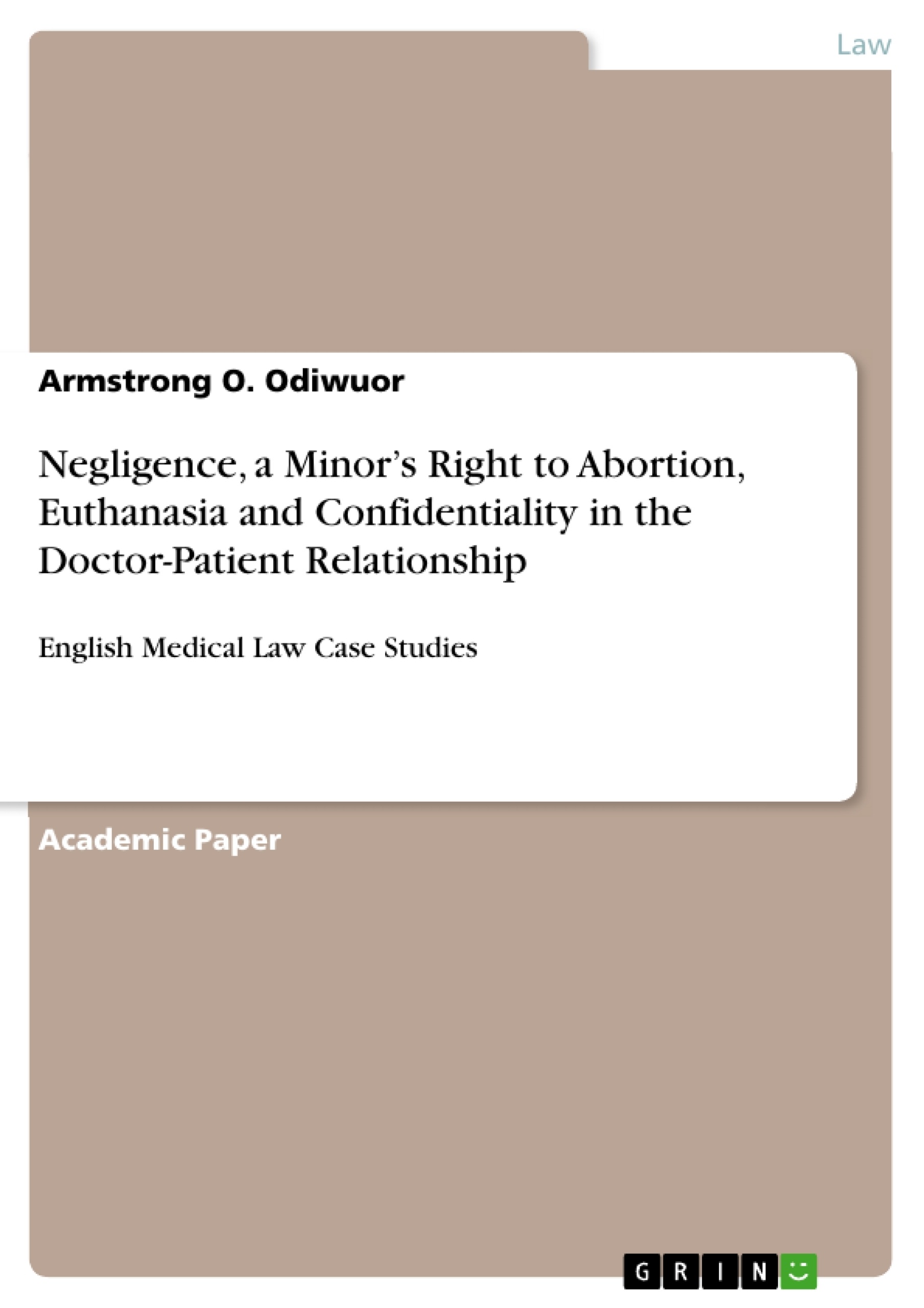This paper addresses three separate case study questions, each examining distinct legal and ethical issues in the medical and legal fields.
Case Study 1: Patricia's claim against the NHS involves a misdiagnosis and delays in identifying uterine leiomyosarcoma, a rare cancer. Patricia must establish that the NHS owed her a duty of care, breached that duty, and caused her harm. The misdiagnosis, delays, and withholding of medical records likely constitute breaches of duty. Causation is demonstrated through the "but for" test, showing the delay reduced her survival chances. Damages include compensation for pain, suffering, and financial losses. If Patricia dies before the claim concludes, her estate and dependents can continue the claim under the Fatal Accidents Act and the Miscellaneous Provisions Act 1934. This case highlights ethical concerns about the diagnosis and treatment of rare diseases within the NHS.
Case Study 2: James and Ayla face complex decisions regarding their daughter Beatrice's right to an abortion, their infant son Callum's life support, and their uncle Clarence's request for euthanasia. Beatrice, despite objections from her father and boyfriend, has the right to an abortion under the Abortion Act, supported by the principles of Gillick competence. The decision to remove Callum from life support hinges on the best interest analysis, where courts consider medical evidence and quality of life. Clarence's request for euthanasia is illegal under UK law, despite ethical debates about autonomy and suffering. This case explores the balance between legal rights, medical ethics, and personal beliefs.
Case Study 3: Sophia, a public figure with strong views on premarital sex, faces a breach of confidentiality by her doctor, Dr. Brown, who disclosed her private medical information to the media. Sophia can seek an injunction to prevent publication, supported by her right to privacy under Article 8 of the ECHR and case laws such as Campbell v. MGN Ltd. The ethical tension between privacy and public interest is examined, with the conclusion favoring Sophia's right to confidentiality given the irrelevance of her private life to her public role. This case emphasizes the importance of confidentiality in the doctor-patient relationship and the ethical boundaries of public interest.
- Quote paper
- Armstrong O. Odiwuor (Author), 2024, Negligence, a Minor’s Right to Abortion, Euthanasia and Confidentiality in the Doctor-Patient Relationship, Munich, GRIN Verlag, https://www.hausarbeiten.de/document/1493194



